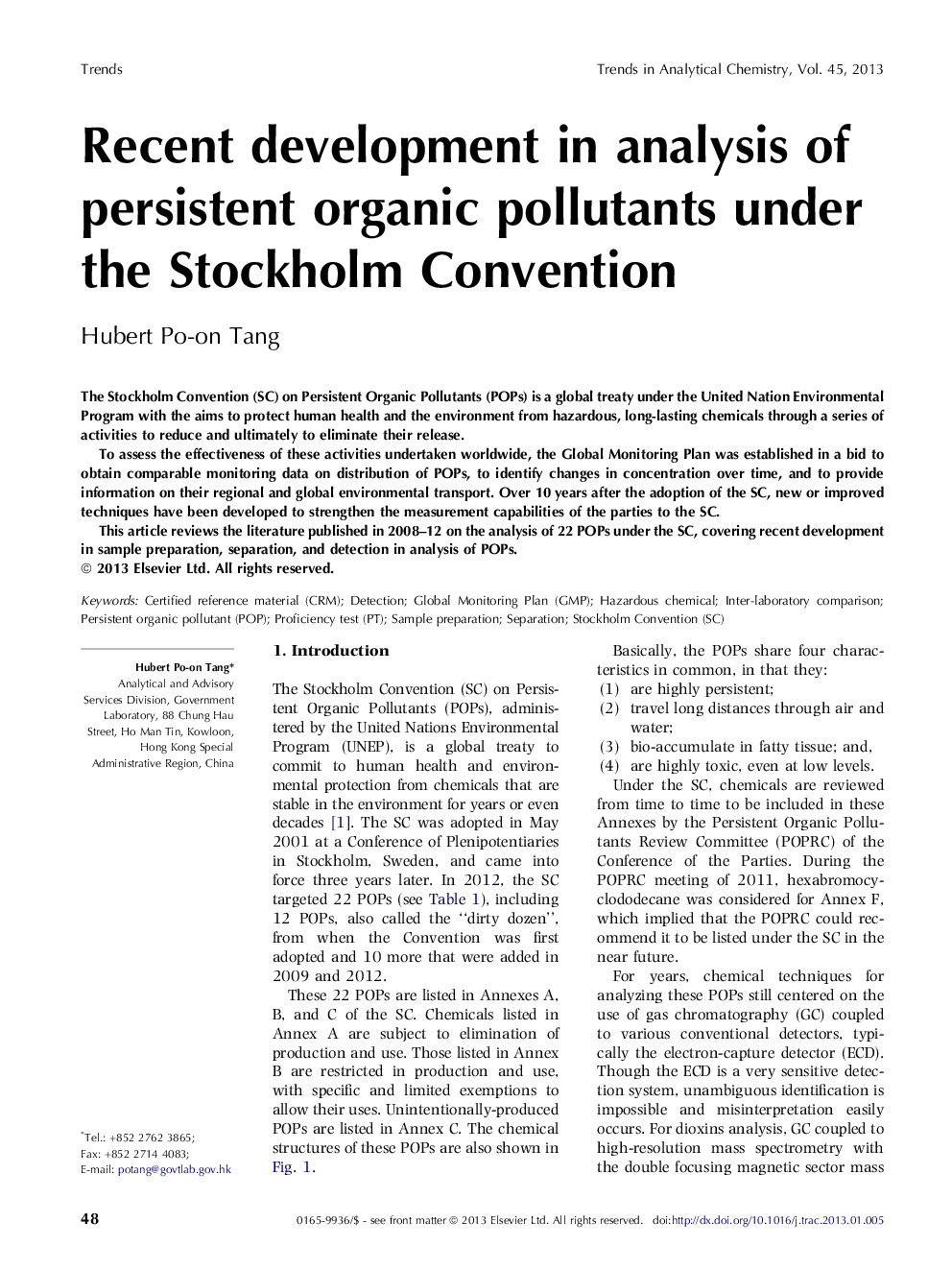| Article ID | Journal | Published Year | Pages | File Type |
|---|---|---|---|---|
| 1249167 | TrAC Trends in Analytical Chemistry | 2013 | 19 Pages |
The Stockholm Convention (SC) on Persistent Organic Pollutants (POPs) is a global treaty under the United Nation Environmental Program with the aims to protect human health and the environment from hazardous, long-lasting chemicals through a series of activities to reduce and ultimately to eliminate their release.To assess the effectiveness of these activities undertaken worldwide, the Global Monitoring Plan was established in a bid to obtain comparable monitoring data on distribution of POPs, to identify changes in concentration over time, and to provide information on their regional and global environmental transport. Over 10 years after the adoption of the SC, new or improved techniques have been developed to strengthen the measurement capabilities of the parties to the SC.This article reviews the literature published in 2008–12 on the analysis of 22 POPs under the SC, covering recent development in sample preparation, separation, and detection in analysis of POPs.
► 22 persistent organic pollutants are regulated under the Stockholm Convention. ► Sample preparation, analyte separation and detection in accurate measurement of POPs. ► Gas chromatography is still a prominent chromatographic technique for non-polar POPs. ► Mass spectrometry is prevailing in sensitive, selective detection in POPs measurement. ► Certified reference materials and comparisons measure the QA of POPs laboratories.
